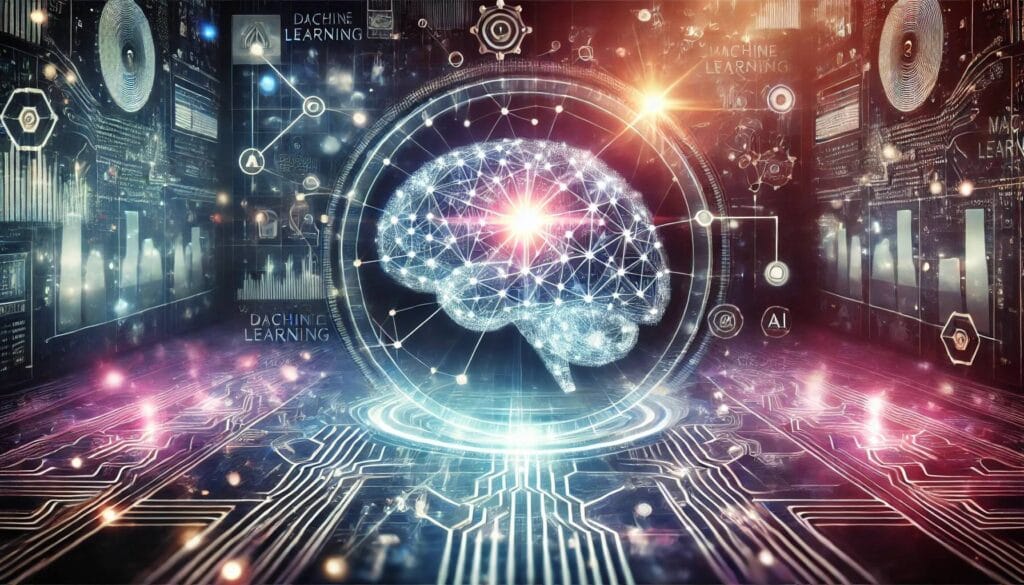Unlocking the Future: The Power and Potential of Machine Learning

Machine Learning (ML) is a subset of artificial intelligence (AI) that focuses on the development of algorithms that allow computers to learn from and make predictions or decisions based on data, without explicit programming. In simpler terms, machine learning enables machines to automatically improve their performance by learning from experience, just like humans do.
Types of Machine Learning
Machine learning algorithms can be broadly classified into three main categories based on how they learn from data:
1. Supervised Learning
Supervised learning is the most commonly used form of machine learning. In this approach, the model is trained on labeled data, meaning that the input data comes with the corresponding output labels. The goal is to learn a mapping from inputs to outputs based on the training data so that the model can predict the output for new, unseen inputs.
Examples:
- Classification tasks: Identifying whether an email is spam or not based on historical data.
- Regression tasks: Predicting house prices based on features such as square footage, location, etc.
2. Unsupervised Learning
In unsupervised learning, the algorithm is given unlabeled data and must find hidden patterns or structures in the data. The goal is to identify groups, clusters, or associations within the data without any predefined labels.
Examples:
- Clustering: Grouping customers based on purchasing behavior.
- Dimensionality reduction: Reducing the number of variables in a dataset while preserving its essential information.
3. Reinforcement Learning
Reinforcement learning is inspired by behavioral psychology. It involves training an agent to make a sequence of decisions by rewarding or punishing it based on the actions it takes. The agent learns to maximize the cumulative reward over time by exploring and exploiting different actions in its environment.
Examples:
- Game-playing agents: Training agents to play games like chess or Go, where they must take actions to win the game.
- Robotics: Teaching robots to perform tasks like walking or picking up objects.
Applications of Machine Learning
Machine learning has found applications across many industries, transforming how businesses operate and how individuals interact with technology. Some notable applications include:
1. Healthcare
Machine learning is used in diagnosing diseases, predicting patient outcomes, and discovering new drugs. For instance, ML algorithms can analyze medical images to detect tumors, identify early signs of disease, and assist doctors in providing better care.
2. Finance
In the financial sector, machine learning is used for fraud detection, algorithmic trading, and risk management. By analyzing historical financial data, machine learning models can predict market trends and detect unusual patterns indicative of fraudulent activities.
3. Retail
Machine learning is extensively used in the retail industry for customer segmentation, personalized recommendations, and inventory management. E-commerce platforms like Amazon use machine learning to suggest products based on browsing history and past purchases.
4. Transportation
ML algorithms are used in self-driving cars, traffic prediction, and route optimization. Autonomous vehicles learn from sensor data and driving conditions to make decisions in real time.
Challenges in Machine Learning
While machine learning has made tremendous progress, it still faces several challenges:
- Data Quality and Availability: Machine learning models rely heavily on data. Poor quality or insufficient data can lead to inaccurate predictions.
- Bias and Fairness: If the training data contains biases, the model will learn those biases, which can lead to unfair or unethical outcomes.
- Interpretability: Many machine learning models, especially deep learning models, are often seen as “black boxes,” meaning their decision-making process is not easily understood by humans.
- Overfitting: When a model is too complex and learns the noise in the data rather than the underlying trend, it can perform poorly on new, unseen data.
The Future of Machine Learning
The future of machine learning looks promising, with advancements in deep learning, neural networks, and reinforcement learning opening up new possibilities. As more data becomes available and computational power increases, we can expect even more sophisticated applications of machine learning in fields like healthcare, education, and climate science.
Furthermore, ethical considerations surrounding AI and ML are becoming increasingly important. There is a growing emphasis on developing models that are transparent, fair, and accountable, ensuring that their applications benefit society as a whole.
Conclusion
Machine learning is transforming industries and improving our lives in countless ways. From self-driving cars to personalized recommendations, the potential applications of ML are vast. However, it is important to address the challenges of data quality, fairness, and interpretability to ensure that machine learning systems are used responsibly and effectively.
Source : Medium.com




